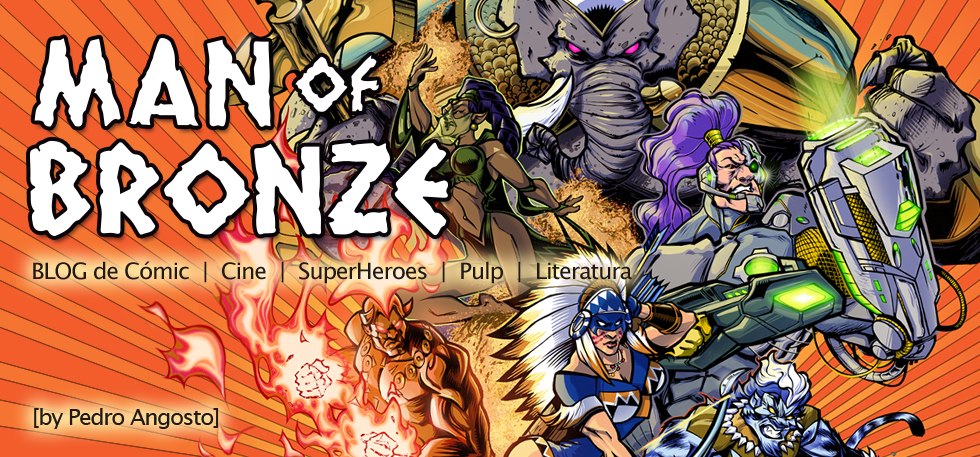Bill Maher has informed us, both on Twitter and again last night, that comic books are for kids and that fans of them are basically stunted individuals who are unable to accept adulthood.
So let’s talk about fans.
Fans love to argue. They are particularly big on arguing who their heroes can defeat. And periodically they gather in large crowds, sometimes numbering over 50,000. They pay ridiculous entry fees to get in, and many of them dress up like their favorites.
In the places where they gather, they cheer on their respective faves, chant together, eat and hang together. They buy a ton of merchandise, dropping hundreds of dollars at a time. And if they’re lucky, they get autographs and go home happy. Hell, on rare occasions they even attend parades dedicated to their heroes.
And that’s just Mets fans.
It’s also Yankees fans, and Phillies fans, and Dodgers fans, and Jets and Giants fans, and Knicks fans, and so on throughout the country.
Hell, Bill Maher even profits off it, since he bought a minority share of the Mets in 2012.
And all these games…they involve balls. Isn’t that interesting? Large ones, small ones, that get bounced or hit or thrown. Balls, which are–as you know–one of the favorite toys of babies.
Yet interestingly no one, not even the profiting Bill Maher, ever accuses sports fans of being juvenile. Of being overgrown children. Get a whole bar riled up about Yankees versus Red Sox and no one is going to say, “My God, grow the hell up.”
That’s because, as Neil Gaiman pointed out, if you have stories told via words alone, that’s books and the realm of adults. Have pictures by themselves and that’s art, and also for adults. But the moment you combine words and pictures, assholes believe that that makes it entertainment purely for children.
I’ve said this before but it bears repeating: comic books aren’t juvenilia. Comic books are modern myths. The definition of a myth is something that is defined within its own essence. If you ask someone, “Who is Gomez Addams?” they will reply, “He’s a character created by cartoonist Charles Addams.” IF you say, “Who is Superman?” people will likely respond, “He’s a superhero, the last son of Krypton, with the secret identity of Clark Kent.”
In the same way that if you ask who Hercules is, you’ll be told that he is a half-god born of Zeus having an affair with a mortal. You don’t put it in context of its creation; you define it as itself.
People who find Spider-Man fascinating are just as valid and adult in their interests as someone who studies Arthurian legend. The fact that it’s happening in modern time and we know who the creators are doesn’t make it any less mythic.
Nor is the multi-billion dollar success of their movies proof of their crossover appeal, according to Maher. “They’re all the same!” he declares, asserting that ALL comic book movies are about superheroes fighting over “glowy” things (like athletes fighting over a ball, remember.). The short answer is, Yeah, right, “Black Panther” is just like “Wonder Woman” (neither of which involved anything glowing.).
The longer answer is, Yeah, right, super heroes fighting over glowing things is sure an accurate description of Men in Black. Or Road to Perdition.. Or Kingsmen. Or V for Vendetta. Or From Hell. Or 300, Sin City, American Splendor, Atomic Blonde, Ghost World,Dredd, Scott Pilgrim vs the World, and on and on.
BUT, Maher further asserts, comics aren’t literature. Well, let’s figure that out. The dictionary definition of literature is: written works, especially those considered of superior or lasting artistic merit. So what’s lasting merit? It seems reasonable to assume that it’s obvious: something that lasts. That transcends generations.
So since Action Comics #1, which was produced over eighty years ago, still has resonance, that would seem to satisfy the definition, as does Spider-Man who was created fifty-five years ago. But perhaps it’s deeper than that. Perhaps to be literature, it must be critically acclaimed. Like Watchmen was when it won the Hugo. Like Sandman when it won the Bram Stoker award. Like Maus was when it won the Pulitzer.
How many Pulitzers do you have on your shelf, Bill?
I’m not pissed off with Maher because he went off on a rant about fans. God knows I’ve done that myself. I’m pissed off because he went off on a rant that was factually wrong, demonstrably inaccurate, and incredibly unfair. His words come from ignorance, and I wish to God he would do something, anything, to educate himself.”








1 comentario:
Pues una respuesta muy floja me parece, demasiadas aristas, ¿consideramos el rugby como cultura (en el sentido no antropológico)? ¿solo puedes opinar sobre cómic si tienes un Eisner?,¿es 300 lo mismo que V de Vendetta?... Palabras e imágenes las juntas y te sale un cartel publicitario de sopa de pollo y no por eso es arte de vanguardia...
El otro día estaba leyendo una de las columnas de Stan Lee que estan ahora republicando tras su fallecimiento, y su planteamiento era que los cómics de Marvel estaban principalmente para entretener. Y si ya de paso, de refilón, se podía meter algún tema humanista pues mejor. Los propios cómics de David no son mucho más que esto. Y no es algo malo, pero tampoco super enriquecedor. Aprenderse los Pokemons no implica ser capaz de saberse la tabla periódica.
Maher ha hecho una generalización absurda y no se le puede responder con algo del mismo nivel si se quiere generar debate. Mejor le hubiera ido a David enviarle una lista de "must read" para que al menos Maher no se pueda escudar en el desconocimiento.
Publicar un comentario